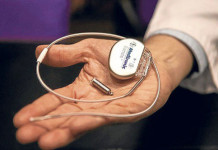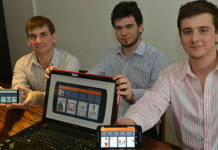Although a long history of domination and cultural imposition has placed western medicine as one of the more legitimated knowledge systems in the world, the native people who inhabited the world before the conquests, also became sick, but they responded to that problem in a different way.
In the province of Neuquén, Argentina, 8% of the population is Mapuche, one of the native peoples that inhabit Chile and Argentina befote the arrival of the Spanish. That means that 8 every 100 people identify themselves as natives and, as such, they acknowledge and practice their culture. However, at the time of something so critical and important as a health problem, native people need care, and they do not want to lose this due to their beliefs.
For that reason, in Neuquen, since they already co-exist in every day life,both cultures were articulated, to open an inter-cultural hospital, that has as a reference the antecedents in intercultural health in Chile, where the traditional public medicine and mapuche medicine meet.
The center will be called “Ruca Choroy”, alter a water mirror in the Province, and there doctors, scientists and traditional healers will work together, experiencing cultural interchange, respect and mutual acknowledgement and recognition.
In this way, those who do not support the principles of western medicine will be able to count with a religious ceremony or receive the natural preparations their people is used to.
“It is the result of 15 years of experience together with these Mapuche communities. In this way, we move towards an encounter between biomedicine and mapuche medicine. Each one with its value and their techniques.The project is to make good use of both of them”. Says Fabián Gancedo, a doctor at Aluminé hospital.
The Hospital design has the shape of a half moon with an area of 522 m2 and it will work in the paraje Epu Pehuén (territory of the Aigo and Hienguehiual Mapuche communities). As Fabián says:
“There will be place for bonfires, and for the mapuche healers, the bone componers, yerbateros, and a ceremonial space for the machi, the maximum figure of the mapuche Healing ceremony” because as que points out :“ Biomedicine is not enough to supply for the health requirements of the community, leaving aside other aspects that mapuche medicine do consider, such as the family, the past and the environment”.
Its creation is legally framed within the 169 OIT agreement that states the right of the Indigenous Peoples to be consulted to adjust the parameters of medical assistance to the their traditions and culture.
To describe the Mapuche worldview , Lorenzo Loncón, “werken” (messanger) of the Confederación Mapuche Neuquina and lawentuchefe (specialist in curative plants) explains that:
“Western medicine conception separates everything: man from nature, culture from nature. And to us, it is a unity. Ancient medicine has shown that if it is natural, it is much better than a chemical or synthetic combination. And besides, if all the cultures are different, medicine should also be appropriate for every culture and it should be available. Nature enables that: since it is near the people, and if you take care of it, Nature takes care of you”.
By the end of last year, the Ministry of Health in Neuquén guaranteed the continuity of this project that was born in 2008, and that soon will open its doors to the community, becoming an example of joint work between two different cultures and making it possible for mapuche people to be acknowledged and empowered in their knowledge.
Source:
http://porelpais.com.ar/hospital-mapuche/
http://www.saludneuquen.gob.ar/centro-de-salud-intercultural/
http://www.neuqueninforma.gob.ar/trabajan-en-el-diseno-legal-de-la-medicina-intercultural/









